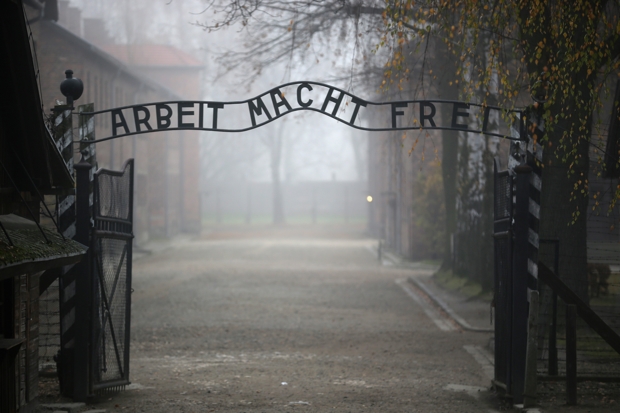Poland’s new government, which is described as right-wing and nationalistic, is in the news again. This time it wants to make it a criminal offence, punishable by up to five years in prison, to implicate Poland in the atrocities committed by Nazi Germany on Polish soil. Uproar has ensued: the Law and Justice party is suppressing freedom of speech again. First the courts, then the media, now this!
And while I agree that reference to ‘Polish death camps’ should not be made a criminal offence – people should be allowed to say what they want – I do, however, understand what lies at the root of this proposal. It is not, as many will say, evidence of Polish anti-Semitism, but rather a reaction to the widespread disinformation about Poland’s role in the Second World War which has been perpetuated for decades. This is an injustice which Poles feel deeply.
It is, of course, true that six of the German-run death camps were in Poland. The country was under Nazi German occupation at the time. It is also true that there were Polish people who colluded with the Nazis, just as there were French and Dutch people, among others, who did too. The French Vichy government, for example, actively cooperated with the Nazis, arresting thousands of their own people on the streets of France and handing them over.
But it is simply not true that the extermination camps were Polish, nor is it true that they were in Poland because the Poles were more anti-Jewish than other European countries. The reason was quite simple, in fact: there were far more Jews in Poland than in any other part of Europe, which meant they would not have to be taken so far.
A fact not widely known is that Poland was also the only country in Europe where it was a capital offence during Nazi occupation to give any help – even a slice of bread – to a Jew. I mention this not to excuse Poles who did cooperate with the Nazis, but to point out that, in spite of this, many Poles risked their lives and those of their families to help and hide Jews. Others were massacred resisting and fighting the Nazis. Most Poles alive today know or knew someone who helped or fought or both, and so you can understand why their blood boils at the allegations.
You might think they are being over-sensitive. If it’s not true, then why get upset about it? But the false allegations happen constantly. This is a battle which, it seems, Poland will never stop having to fight.
I remember when in 2000, my father, who is Scottish and married to a Pole, was sent a standard issue history textbook by a Polish woman who was horrified by what her 10-year-old child was being taught at his London school. The text read:
‘He [Hitler] now planned to wipe out all the Jews in Europe. There are many others who helped Hitler in this campaign of mass murder including Poles, Ukrainians, and those French who worked for the Nazis after France was invaded in 1940.’
The conclusion which one would draw from this was that whereas all Poles and Ukrainians helped the Nazis, only those French who worked for the Nazis did. When my father brought this to the attention of David Blunkett, the then education secretary, Mr Blunkett contacted the publishers who apologised and immediately changed the text.
Politicians, historians and academics, both British and Polish, supported my father’s campaign to set the record straight, and I remember his frustration when that same week Jon Snow referred to ‘Polish concentration camps’ a number of times during one Channel 4 news broadcast. Snow apologised at the end of programme.
And many will remember the time in 2012 when President Obama referred to ‘Polish death camps’ at a public event. The White House later issued a formal apology to Poland. You might say that Obama’s comment, like Snow’s, was a slip of the tongue, nothing serious. Unfortunately though, these slips are all too frequent. The apologies that follow the slips are proof that ‘Polish death camps’ were simply not a thing. Poland’s government is echoing, though far too extremely, what many Poles feel: that they would simply like them to stop being referred to as such.






Comments